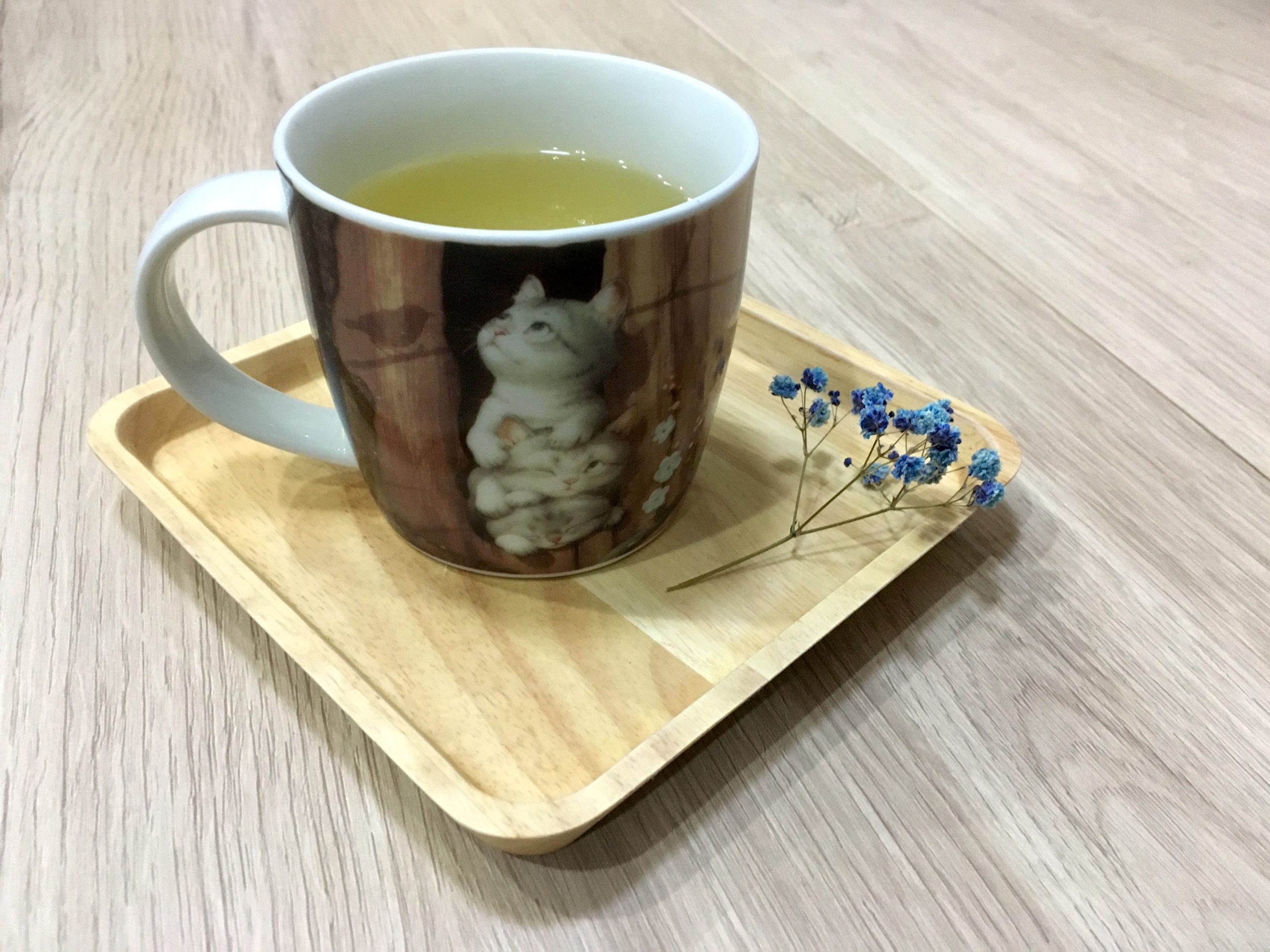A warming drink for fighting a cold with the natural properties of ginger, or just for pleasant sipping on a winter day.

Time: 1/5
Done and over in 15 minutes
Effort: 2/5
Not really that hard, but everything is harder with a cold
Fighting the Flu Blues
If red dates and snow fungus poached in a hollowed out pear is the Porsche 911 of home remedies for flu, then this ginger lemon honey tea is probably the Toyota Corolla in this analogy. Nothing fancy, but real good value for money. Maybe. I don’t drive.
Ginger comes with antioxidants and other chemicals that are shown to be good for you. While I’m not qualified to say if that’s true or not, what my lived experience tells me is that it gives this tea a kick that works wonders for opening up your sinuses. The vitamin C from the lemons certainly doesn’t hurt, and honey just sweetens the entire deal.
Best of all it’s simple enough to make when feeling sick, and it’s easy and quick to make a big batch. It’s what I made for myself when I caught Covid, and I made it again when it was my SO’s turn to catch it. Make it several times, and you might even acquire a taste for it, and start sipping it just for pleasure.
If you hang on until the end, I’ll share a little tip about what to do with the peel after you juice the lemons. (;

Dramatis Personae
Ginger
It never hurts to keep some ginger around. They keep very well in a pantry if kept dry and in the dark, and they can be used in a myriad of savoury and sweet recipes. Even if you don’t cook asian often, you might find them pleasant in a smoothie or a cocktail.
The ratio of ginger to water doesn’t really matter, you can always dilute the solution with more hot water if it’s too ginger-y. In fact, if you make a very strong ginger tea, you can use it like a concentrate – store it in the fridge and add hot water as needed.
Lemons
I’ve seen grocery stores sell lemon juice in little squeeze bottles – I’ve used them in cooking and for making this tea, but they don’t compare to the real deal in terms of taste (and probably nutrition).
I would advise against exposing the lemon peel to any heat, or even submerging them in cold water for prolonged periods of time. Doing either would extract bitter flavours, mainly from the pith, which I don’t find pleasant in this context. On a related note, I’d add lemon juice only after the heat is off to preserve freshness and the vitamin content.
Honey
I prefer honey because I find it helps soothe a sore throat, but any reasonably clean-tasting sweetener (like agave syrup, or just plain sugar) would work. Not too much though, excessive sweetness can induce sputum production sometimes.
Executive Summary
- Peel and slice ginger thinly. Put in a pot of water and bring it to a simmer.
- While the ginger simmers, roll a lemon against the counter and slice into wedges.
- Once the water has been infused with ginger to your liking, switch off the heat and add lemon juice and honey to taste.
- Serve in a cute mug for maximum effect.
Play by Play

Infusing the water with ginger is the time limiting step. While bringing the water to a simmer, peel some ginger. A spoon works very well, or if that’s too much work just square a knob of ginger with a knife. The thinner you slice, the quicker it will infuse. It doesn’t matter if the water isn’t boiling when you put the ginger in. Once it’s in the pot, you can let it do its thing and move on.

I found this is a pretty good way to get nice wedges for garnish, as well as for juicing. Take the top and the tail off, then slice into quarters lengthwise. The seeds are all easy to get to if you want to get rid of them too. Rolling against the counter before you slice busts up the internal structure of the lemon and makes it easier to squeeze.

Hang on to those bits and bobs – lemon peel works pretty well as an all-natural deodoriser. Stick them in the fridge, and you’ll get rid of all sorts of odd odours that can accumulate. After they dry out in the fridge, move them into cupboards and cabinets for a similar effect.

Cats make everything better (=^ω^=)
Keep browsing by categories, or by tags:
Beef Blog Broccoli Cabbage Carrots Cast iron Cheese Chicken Curry Dashi Date Night Dried scallops Dried shrimp Eggs Fish and seafood Garlic Ginger Glass noodles Gochujang Honey Miso Napa cabbage Onion Oven Pasta Pork Potatoes Salmon Sesame oil Shiitake mushrooms Shrimp Soup Sous Vide Steaming Stewing Stir fry String beans Sweet potatoes Teriyaki Tofu Tomatoes Vacuum cooker Vegetarian Yogurt Zucchini

